Happy Birthday Anne Pratt!
by Karl Mercer, Curating Visibility fellow
I don’t know if when Anne Pratt moved to Dover in 1849 she could have possibly known that 175 years later her story would profoundly affect an autistic guy just trying his best.
You see Anne as a story that I have seen both sides of. A story that is an excellent example of just how holistic our approach to understanding disability, and integrating accessibility into our day-to-day lives is, for ensuring disabled people are allowed to thrive.
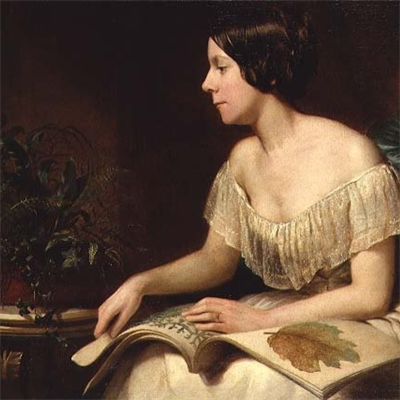
Portrait of Anne Pratt (1830)
Anne had health problems as a child. We do not know specifics; some sources just mention her being ‘sickly’, others specify rheumatic fever as a culprit. What we do know is she was ill, and lived with significant pain and immobility in at least one knee.
Her family, though, were incredibly supportive of her, despite being of relative modest means. She was born in 1806, the daughter of a grocer.
Her parents, understanding her needs, and knowing she must feel excluded not being able to play outside with her siblings and other children, made measures to ensure she was nurtured in the things she did enjoy.
Despite education not being made mandatory until 1880, Anne was sent to a school in Eastgate House, Rochester for education. Through family contacts she was encouraged to pursue botany, and she was encouraged to draw by her parents. The story of her siblings bringing her plants and flowers from the garden shows the incredible amount of love and support her family had for her.
I was not so lucky. Born into a working class family as an undiagnosed autistic child I followed a pattern familiar to many. I excelled at primary school under enthusiastic teaching and my own steam. Support was not forthcoming at home, though. My mum worked a physically demanding full-time job, my dad danced with unemployment, so my main parent, my main influence, was a television.
By secondary school I had already checked out. A huge move, separated from the group of friends I had fostered, and delivered into a cold, uncaring grammar school system that had little room for understanding or nurture and only cared about results – I floundered. I found a school report recently that mentioned I would need to ‘work harder to reach my potential’. I did not fail, I actually did very well considering. I just did not achieve what they thought I could and the school, my family, all saw that as an individual failing. They thought me ill-disciplined and lazy when I was actually uncomfortable and autistic.
The thing about ‘reaching potential’ is highlighted in Anne Pratt’s tale.
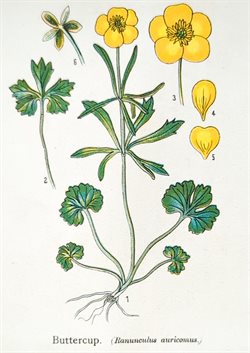
An illustration of a buttercup from 'Wildflowers of the year' by Anne Pratt
If we consider Anne as one of the beautiful flowers she illustrated. They start as a delicate seed, and need a comfortable, nurturing space to germinate. But it doesn’t stop there, once there’s a little shoot it needs more water, more nutrients and more light to grow big and strong. It doesn’t stop there, either. In order to contribute, to flower and seed, it takes a huge amount more investment. Anne had the stable soil in her family. She had the light and warmth of their encouragement, the nutrients of the drawing equipment and her siblings bringing her things from the garden. She blossomed, and became an amazing and renowned artist and writer.
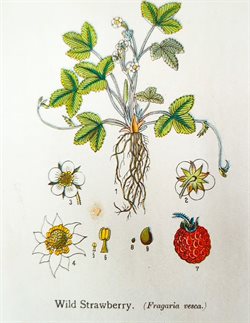
An illustration of a wild strawberry from 'Wild flowers of the year' by Anne Pratt
Potential is not reached by one individual working hard. I did just that but was, for far too many years of my life, disregarded. I was not considered a beautiful flower but a weed that ought to be extracted. I persisted nonetheless.
Then Curating for Change came along and re-potted me. I finally saw what Anne had got in her youth. In that new soil surrounded by warmth and light and nurtured properly I am now flourishing. I am reaching my potential and my ‘working harder’ had nothing to do with it – I’ve worked hard all my life - the difference was made by a small number of people recognising actually society needed to do better by me.
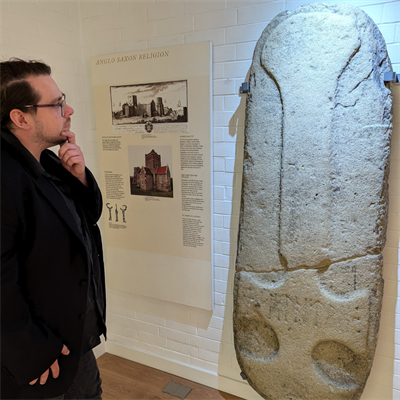
Curating Visibility fellow, Karl Mercer
If you read Anne’s writing you get this sense of her acknowledgement of social responsibility for one another. Her botanical writing is popular, not scientific, in style and touches on poetry, Christianity, folklore and science. She draws a whole community together to teach a whole community about the beauty and complexity of plants. I am now part of that community despite Anne having moved to Dover in 1849, and me having been born there in 1988.
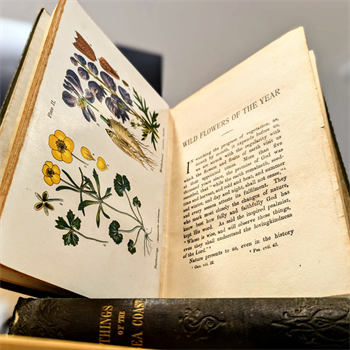
'Wild flowers of the year', by Anne Pratt
We are now connected, and we both understand that if you want to ensure a plant can grow healthy and strong and produce the most beautiful flower possible it does not depend upon the strongest plant, but the best environment.
Today is Anne Pratt’s 218th birthday – and may her words continue to affect people for two centuries more, and beyond.
Happy Birthday, Anne.